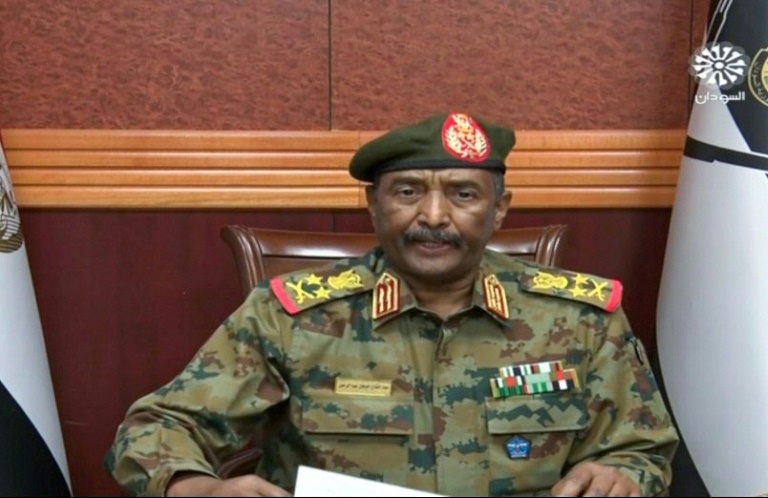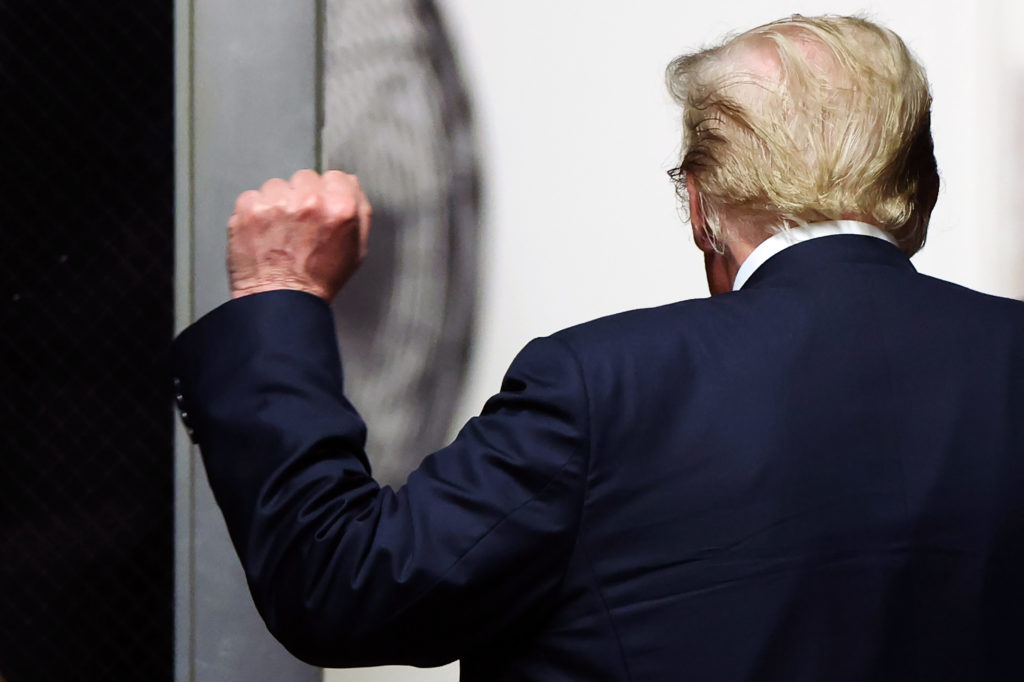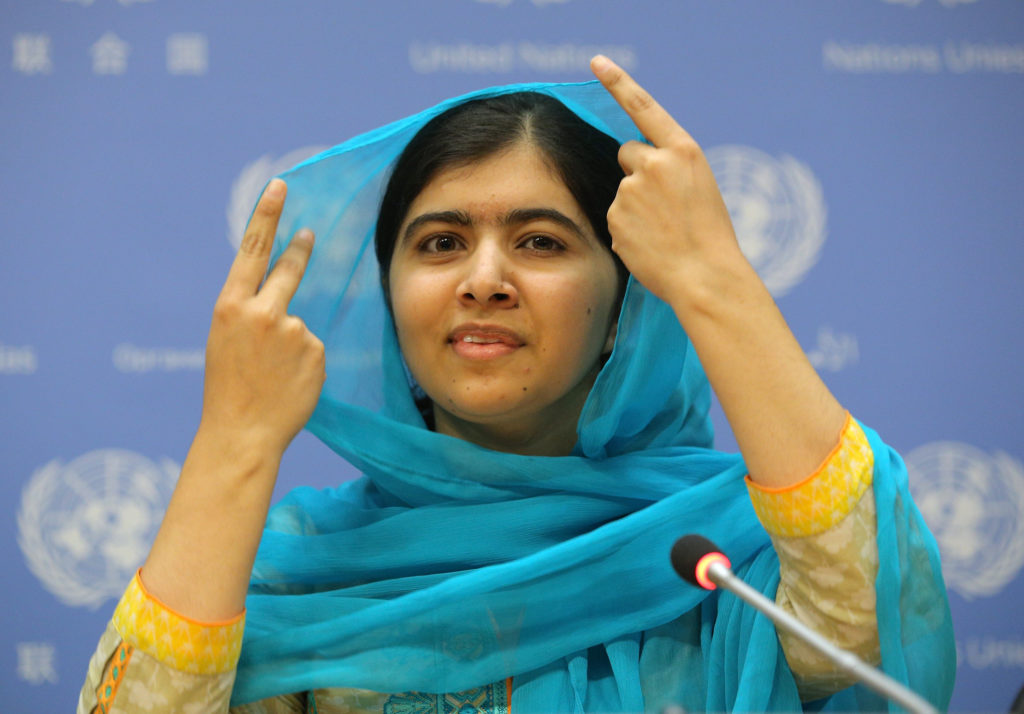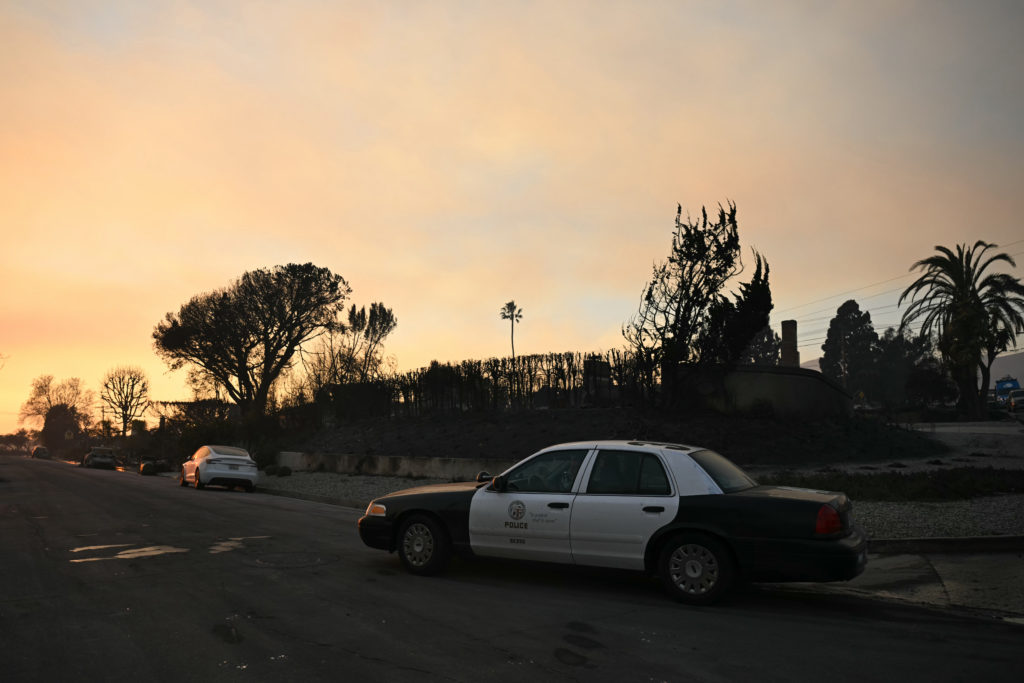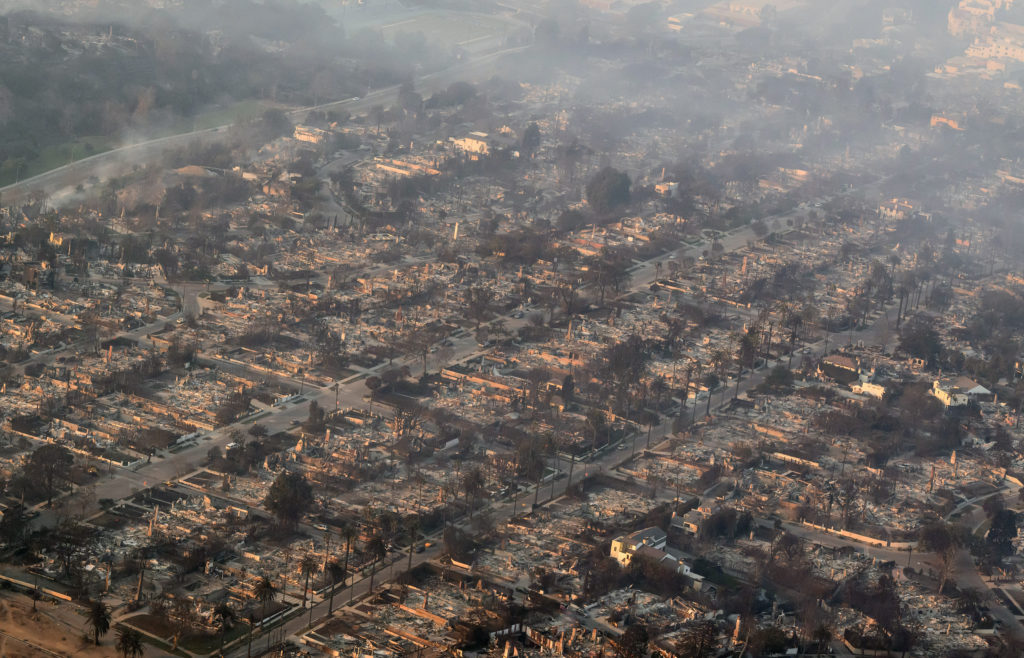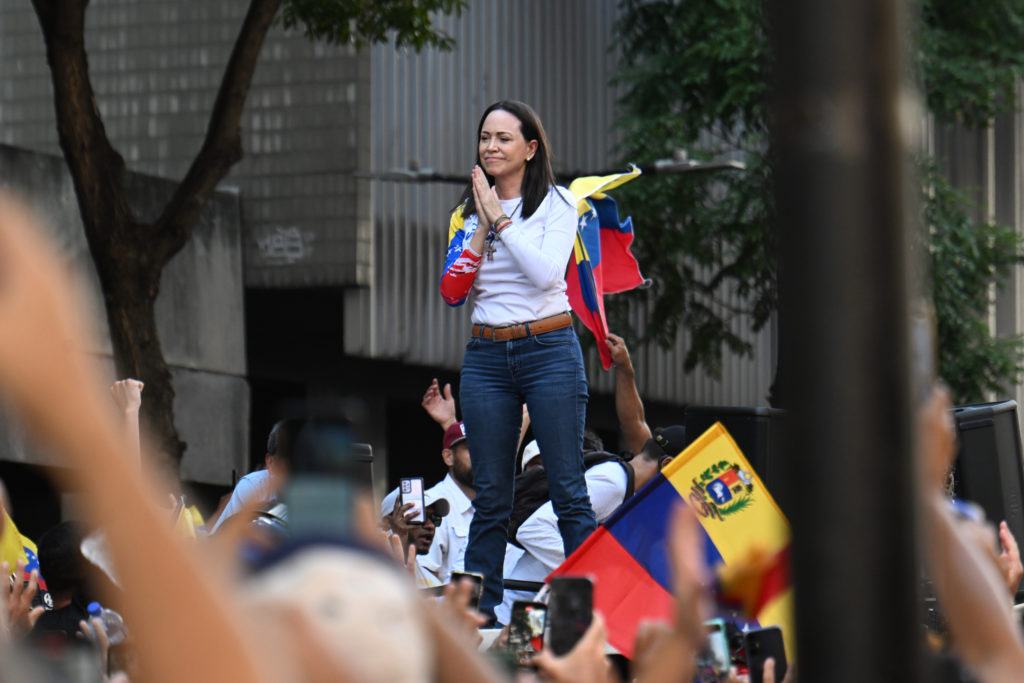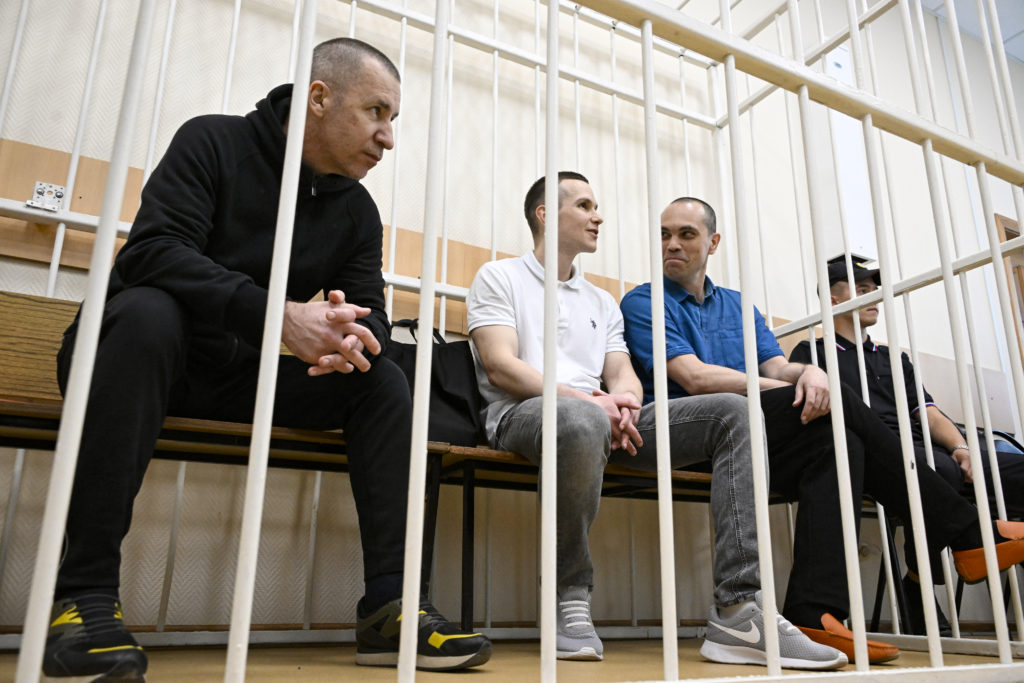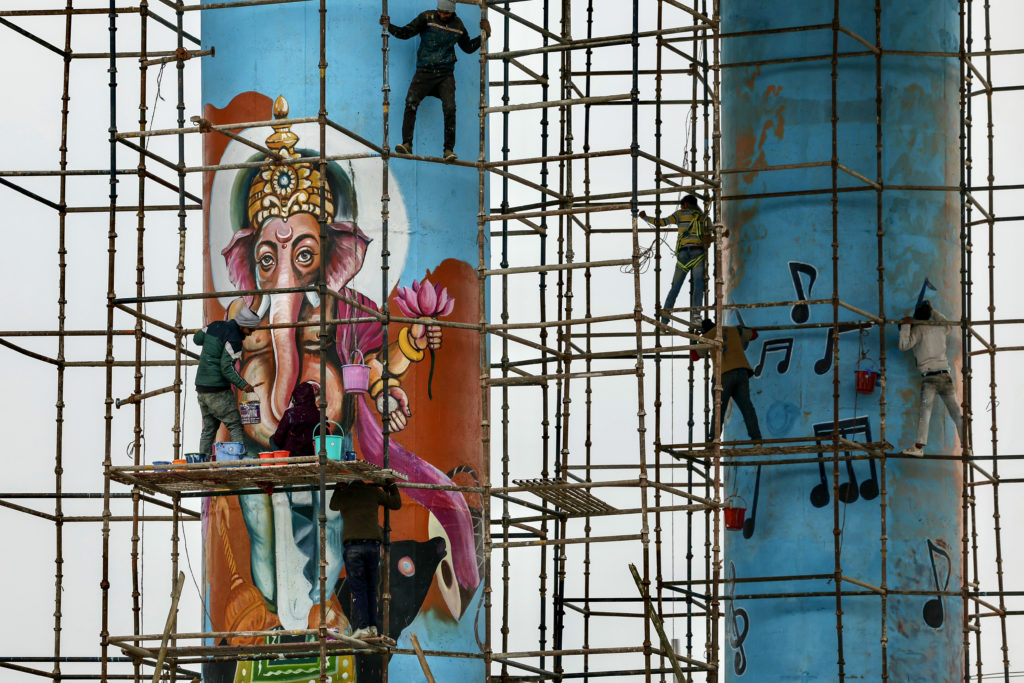Sudan’s top general declared a state of emergency, dissolved the authorities leading the country’s democratic transition, and announced the formation of a new government after soldiers detained civilian leaders Monday in what activists denounced as a “coup”.
General Abdel Fattah al-Burhan’s announcement in a televised address came after armed forces detained figures of the government in charge of leading the transition since the April 2019 ouster of autocrat Omar al-Bashir.
“To rectify the revolution’s course, we have decided to declare a state of emergency nationwide… dissolve the transitional sovereign council, and dissolve the cabinet,” said Burhan, who has links to the paramilitary Rapid Support Forces which have been accused of atrocities in Sudan’s Darfur conflict.
His statement came as clashes erupted in Khartoum, with soldiers firing live rounds at people who took to the streets to protest against the power grab.
The violence, largely centred outside the army headquarters in the capital, came hours after soldiers detained Prime Minister Abdalla Hamdok, ministers in his government and civilian members of Sudan’s ruling council, the information ministry said.
They were taken away after “refusing to support the coup”, it said on Facebook.
Internet services were cut across the country around dawn and the main roads and bridges into Khartoum shut, before soldiers stormed the headquarters of Sudan’s state broadcaster in the capital’s twin city of Omdurman, the ministry said.
People took to the streets soon after, setting tyres ablaze and piling rows of bricks across roads to block them in protest against the military move, an AFP correspondent reported.
“Military forces have fired live bullets on protesters rejecting the military coup outside the army headquarters,” the ministry said.
Around a dozen people were wounded, said the independent Central Committee of Sudan Doctors.
– ‘Will of the people’ –
The power grab, which comes after weeks of tensions between the military and civilian figures sharing power since Bashir’s ouster, was condemned by the international community.
The European Union called for the “fast release” of the civilian leadership.
“I call on everyone in Sudan responsible for security and order to continue Sudan’s transition to democracy and to respect the will of the people,” said Germany’s Foreign Minister Heiko Maas.
America’s Special Envoy for the Horn of Africa Jeffrey Feltman said “the US is deeply alarmed at reports of a military takeover of the transitional government”.
The United Nations described the detentions as “unacceptable”.
“I call on the security forces to immediately release those who have been unlawfully detained or placed under house arrest,” said Volker Perthes, its special representative to Sudan.
The African Union and Arab League also expressed concern.
– Protest calls –
The Sudanese Professionals Association, an umbrella group of trade unions which were key in leading the 2019 anti-Bashir protests, denounced what it called a “military coup” and urged demonstrators “to fiercely resist” it.
Bashir, who ruled Sudan with an iron fist for three decades, is behind bars in Khartoum’s high security Kober prison.
The former president is wanted by the International Criminal Court over charges of genocide, war crimes and crimes against humanity in Darfur.
Sudan’s bankers’ association and doctors’ union on Monday declared campaigns of “civil disobedience”.
Protesters were seen marching through the streets of Khartoum carrying the Sudanese flag.
“Civilian rule is the people’s choice,” and “No to military rule”, they chanted.
“We will not accept military rule and we are ready to give our lives for the democratic transition in Sudan,” said demonstrator Haitham Mohamed.
“We will not leave the streets until the civilian government is back and the transition is back,” Sawsan Bashir, another protester, told AFP.
The developments come two days after a Sudanese faction calling for a transfer of power to civilian rule warned of a “creeping coup”, at a news conference that was attacked by an unidentified mob.
– ‘Engineered crisis’ –
Since August 2019, Sudan has been led by a civilian-military administration tasked with overseeing the transition to full civilian rule.
But the main civilian bloc — the Forces for Freedom and Change — that led the anti-Bashir protests in 2019 has splintered into two opposing factions.
“The crisis at hand is engineered — and is in the shape of a creeping coup,” mainstream FFC leader Yasser Arman told Saturday’s news conference in Khartoum.
“We renew our confidence in the government, Prime Minister Abdalla Hamdok, and reforming transitional institutions — but without dictations or imposition,” Arman added.
Tensions between the two sides have long simmered, but divisions ratcheted up after a failed coup on September 21 this year.
Last week tens of thousands of Sudanese marched in several cities to back the full transfer of power to civilians, and to counter a rival days-long sit-in outside the presidential palace in Khartoum demanding a return to “military rule”.
Hamdok has previously described splits in the transitional government as the “worst and most dangerous crisis” facing the transition.
Analysts have said the recent mass protests showed strong support for a civilian-led democracy, but warned street demonstrations may have little impact on the powerful factions pushing a return to military rule.

